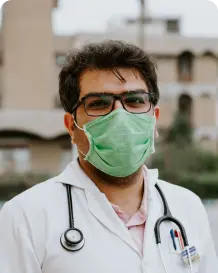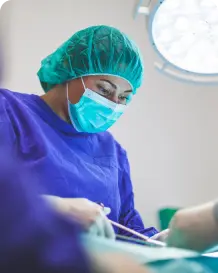Rectal Polyps Treatmentin Bangalore: Causes, Symptoms, & More
Rectal polyps are small, fleshy outgrowths on the rectum (the last part of your large intestine). A small-sized polyp can be removed during a colonoscopy. Larger polyps require surgical intervention. Know more about Rectal Polyps ... Rectal polyps are small, fleshy outgrowths on the rectum (the last part of your large intestine). A small-sized polyp can be removed during a colonoscopy. Larger polyps require surgical intervention. Know more about Rectal Polyps Treatmentin Bangalore. Read more
Latest procedures
 50+
50+
Expert surgeons
Personal Assistance







